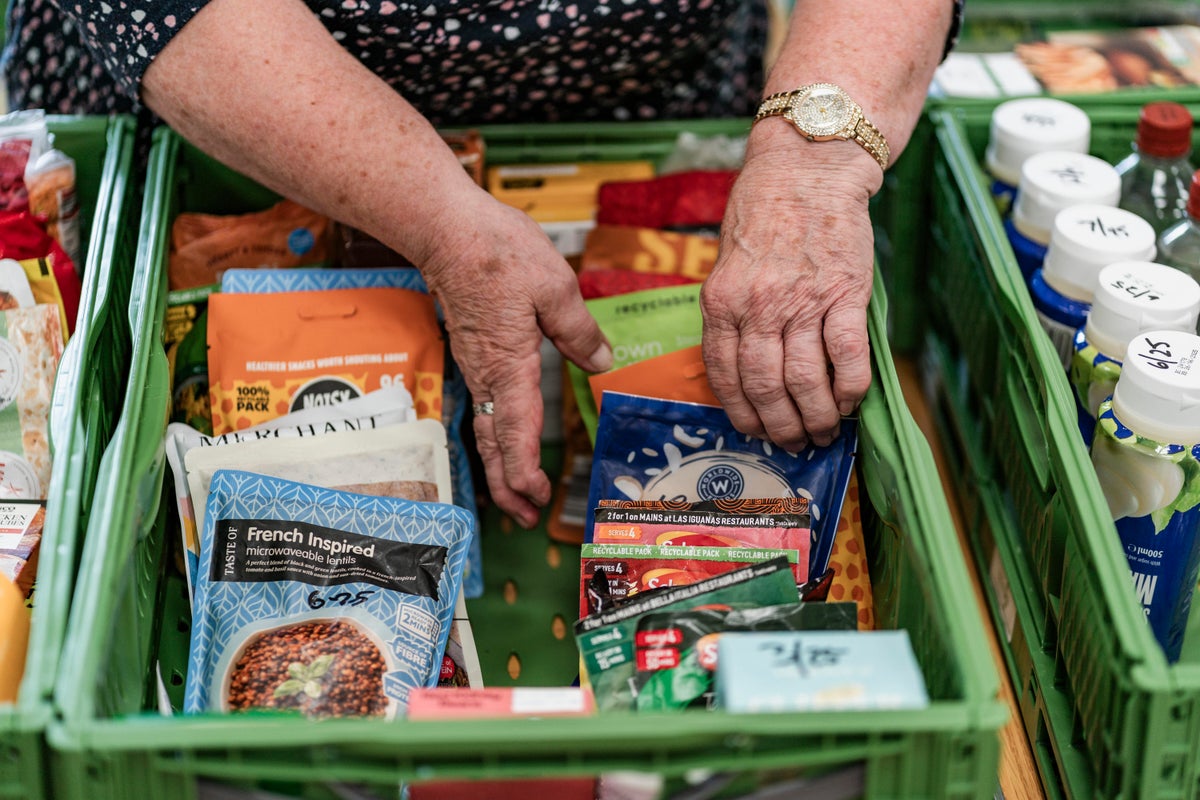With perhaps the exception of the great depression of the 1930s, the current upsurge in hunger is unprecedented in Britain in modern times. The latest research from the Trussell Trust suggests that as many as 14 million people may be going without food, to at least some extent, against an estimated figure of 11.6 million in 2022.
At a time when, even allowing for economic difficulties, living standards for most families in the UK have generally never been higher, some 3.8 million children are growing up in homes where they and their parents are forced to skip or cut back on meals because of financial concerns. If nothing else, this represents a stark rejoinder to those who complacently assume that poverty is a thing of the past, and, to the extent that it does still persist, must be merely a consequence of laziness or fecklessness.
The reason for the rapid increase in the extreme poverty that results in hunger lies not in some sudden urge among the British to become workshy or a change in the generosity of the benefits system, but because of the obvious reasons that every family, even the comfortably off, know only too well.
Much of the fault lies with Vladimir Putin, whose illegal invasion of Ukraine disrupted world energy and food markets so radically that inflation rose to levels not seen in decades, with wages unable to keep up. The effects have not worn off even now, even though some prices have, in relative terms, stabilised. Accommodation continues to be unaffordable, even to some of those with a wage. This will be another cold, hungry autumn and winter for many.
The squeeze on the economy to deal with high levels of public debt and to get inflation down has also seen job opportunities shrink. Meanwhile, the welfare state, cut so harshly during the Conservatives’ years of austerity, has evidently left a less than adequate safety net for those who find themselves workless or in reduced circumstances through no fault of their own. The aggregate welfare bill has certainly risen, but that is at least driven by demographics – a larger population living longer and in poorer health.
What is rightly termed a “hunger crisis”, for too many vulnerable people, recalls the very earliest surveys of poverty and starvation conducted during the end of the Victorian era. The social reformers Charles Booth and Seebohm Rowntree surveyed the typical industrial city of York in 1899 and found shocking levels of destitution and hunger – and at levels that find an uncomfortable echo in the second quarter of the 21st century.
Using a comparable definition of poverty where what Rowntree called the “physical efficiency” of a person is compromised by lack of food, ie in hunger – which is a more exacting measure of wellbeing than poverty – around a quarter of households suffer from such deprivation, then as now. Of course, nowadays, such families will enjoy certain comforts and technology unimaginable to their forebears, but in terms of having a full belly or not, for too many people times have not changed quite as radically as might be assumed.
Only in pensioner poverty has there been an unmistakable improvement over the past couple of decades, driven by an overdue recovery in the purchasing power of the state pension and, for some, successive house-price booms, and the legacy of the remaining final salary pension schemes.
Poverty and hunger have always been stubborn scourges, but there is clear evidence that in Britain in the post-war years – when the welfare state, economic management and social policy were geared towards full employment and equality of outcomes – levels of poverty and hunger fell. From the 1940s to the 1970s, the nation grew healthier as well as wealthier, with fairer shares all round. Waves of cuts to the public sector, and market-driven reforms since, have resulted in increased economic growth, but also higher deprivation, coupled with still high levels of expenditure in relation to national income.
Such a picture suggests ways in which the current hunger crisis can be addressed, and with immediate effect. Abolishing the two-child cap on child benefit would lift millions of larger families out of hunger in a matter of weeks, for obvious reasons. So would some other measures, albeit more slowly.
In fairness to the government, the expansion of free school meals, the establishment of breakfast clubs, and making childcare more accessible will all certainly help. So will creating the conditions to expand the economy with well-paid jobs, and building more homes to alleviate rents. Successive increases in the minimum wage have helped working families, although the cost to business is growing more onerous.
Yet the reality is that the pressure on the public finances, and public hostility to higher taxes and welfare reform, leave little scope for ministers to bring that immediate cash bonus to end the hunger crisis in so many homes. Private sector and charitable initiatives, such as food banks and reducing food waste, have their place, but only the state can resolve the hunger crisis.
That is a political as well as a fiscal challenge. The government’s child poverty taskforce, led by Bridget Phillipson – and, now, Pat McFadden – is due to come up with some proposals as the Budget approaches. They cannot be expected to have all the answers for such an intractable problem, but it would raise the morale of their party, the nation and, above all, hungry people if they could find a way to ease what is an unacceptable level of hardship within a programme of wider reforms.
There is currently an additional, useful incentive. Ms Phillipson is running to be deputy leader of her party; and it would do her chances of winning and restoring the stability and popularity of the Labour government no harm if some relaxation, however modest, on eligibility for child benefit could somehow be squeezed out of the social security system. It would be a rare win-win for the Starmer administration.
